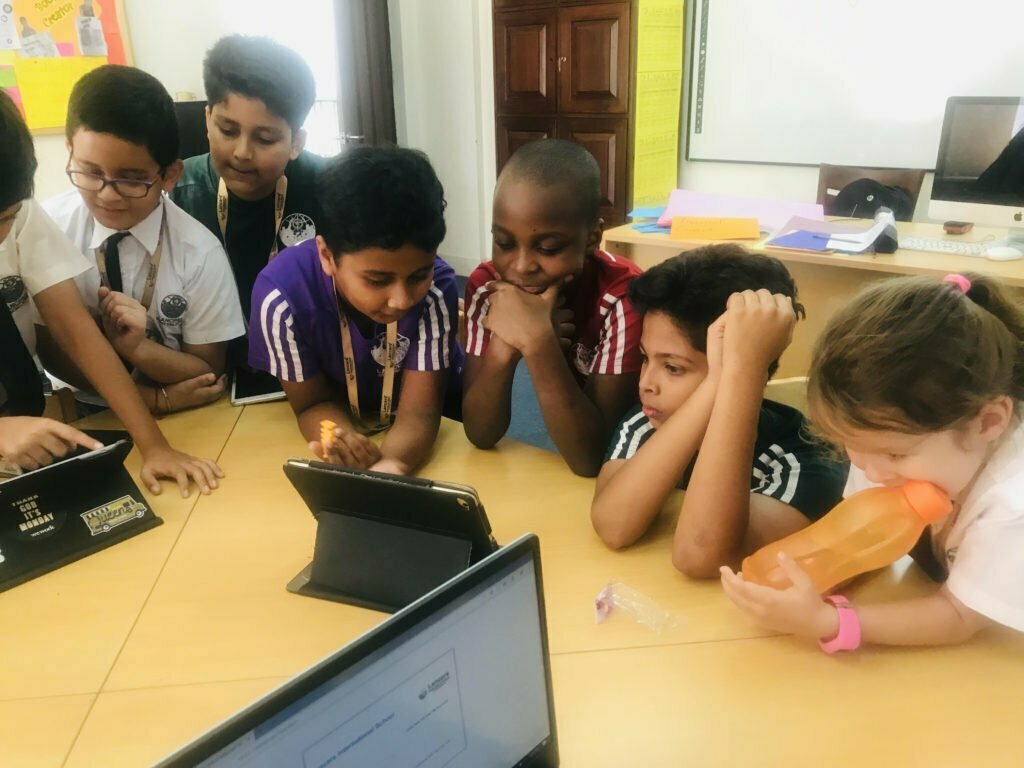Why is it important to listen to your child?
Listening, as it is, is a difficult thing. And to think of listening to your child seems a challenging task. As the child wants to be listened to, parents should ensure that they listen to their child patiently even when hundreds of things are running through their mind. Teachers across the best schools in Gurgaon follow a standard practice of giving time to each child. Children get used to this and expect the same practice at home.
As conducted by research studies, children listen to parents patiently only when parents listen to them. When a child feels listened to, he is more likely to listen, and having been understood, he will understand your point of view as well. It is the responsibility of schools in Gurgaon to help assist parents and children form stronger bonds and relationships.
Talking and listening to your child holds a lot of significance, as it helps your child build a stronger bond with you and develop his/her trust. It improves the bonding in a relationship and builds a child’s morale and confidence. Generally, parents don’t have the skill to ‘listen’, but with a conscious effort, they can develop it. And slowly, with practice, they can be better accustomed to it.
How Do Best Schools in Gurgaon help Parents Actively Listen to their Child?

Best schools in gurgaon
- by creating opportunities within the school environment where parents and children have the chance to bond.
- encourage a child within the class or the school environment to open up. Sharing these thoughts with the parents, so they can further continue that topic of discussion at home with the child.
- helping young parents understand the body language and actions of a child, so as to understand the non-verbal forms of his communication.
Lancer International School conducts various such events/ sessions within its school which helps in enhancing the verbal communication between parents and children. One such event of the school is called a ‘3 Way Conference’. It is held in the primary school once a semester where the parent and the child’s teacher are together in the class. The child uses this opportunity to take his parents and teacher through all the work he has done throughout the semester. This 3 Way Conference brings all the 3 together – the child, the parent, and the teacher. Most importantly its enhances the communication between the child and the parent.
A study conducted by some of the best schools in Gurgaon – How does listen patiently to your child affect his school life?
Listening is not an easy task, as a parent you would be persuaded to raise your voice and tell your child, he is wrong. It takes a lot of patience to really hear out someone, let alone a child, as you may get to hear something that you are not happy about. However at this point in your child’s life, it is not about the right or the wrong, it’s about showing that you are there for him/her. Your there to listen and to discuss if he/she wants to. It does require patience but this patience will go a long way in building your relationship with your child. So how do you actively and patiently listen to your child? We believe it is a skill. You can patiently listen by:
- giving your child your full attention. The phone calls can wait, so does the household work. Let your child know he has your undivided attention
- focus on what the child is trying to say without forming any opinions or views place yourself in your child’s shoes. Imagine how you would have reacted in the same given situation
- Avoid questions, which might break the child thoughts
- Notice your child’s body language and decode the non-verbal signs your child is trying to give
- Show interest, by nodding or moving gestures
What Are The Negative Effects Of Not Listening To Your Child?
Being parents, you aren’t even aware that your day-to-day behavior affects your child in many ways, shaping his or her future personality. Parents, greatly influence their child’s life intentionally and unintentionally. From the tone of your voice to the words you choose to make your child understand concepts. Your child learns the skills necessary to interact with you – as parents are essentially a child’s first teacher. Children who are not heard during their early years become the ones who never listen. They will always be under the impression that they are unworthy of their parent’s time and attention, and whatever they do, think, or feel is not worthy. This goes on to affect their social and mental development, their ability to make meaningful connections and hence friends. One of the studies which were conducted by some of the best schools in Gurgaon concluded children who are not being heard or being paid attention to are the ones who are extremely insecure in the school environment. Many of them find it hard to interact in a group or build up the confidence to stand up or lead a discussion in the class.
Such children lose confidence and self-esteem, which can be detrimental to their development as young adults. A child who is often judged or criticized for his/her views and thoughts loses interest in sharing and communicating their beliefs to the world.
Some Of The Tips Provided by Schools in Gurgaon to Parents On Talking To Their Child And Listen To Them
Some kids are naturally expressive and they can talk about everything out with their parents. Other kids may need a lot of encouragement to be able to talk. Be open to listening and give your child your unfocused attention. Here are some tips on getting your child to talk to you and be open to listening:
- You should talk to your child without any interference. Go on an evening walk with your child and ask him/her to talk about the school or the park. Ask questions. You can also take your child to a long drive and talk without any disturbance.
- Ask questions that would trigger his/her imagination. The more he/she imagines the better the IQ would be in the future!
- Do not be in a hurry to respond. Let your child finish talking and then respond sensitively. When your child is talking, do not jump in or interfere.
- Refrain from lecturing your child. Lecturing is a way of putting your view across, while an engaging conversation fosters the child’s own thinking process and conclusions
- Parents should ensure to make the conversations inspiring for their children. Stories are a perfect way to inspire young kids.
- Parents should use the language that their child understands. They should avoid using words that he/she may find difficult to comprehend.
- It is advised to make eye contact with your child to ensure he/she is being heard
- Parents should show interest in the conversation. Being actively involved in the conversation is extremely important to let the child know that his/her views and opinions do matter
- Never judge, criticize, blame or get angry over something that your child has done or said. It is advised to patiently introspect the situation
- When you listen to your child carefully, you get to know what they are thinking, feeling, and going through. Childhood is a phase when children are imbibed with limited vocabulary, so they often find it difficult to communicate their feelings. It is imperative that children be heard so that they do not bottle up their feelings. It also means that children will listen to their parents more because they have been heard. Concluding on the study conducted by schools in Gurgaon, active listening opens up avenues for healthy conversations, boosts relationships, brings comfort, enhances confidence, and helps the child perform better in school.


